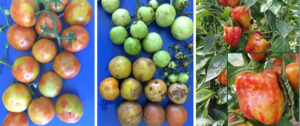
Tomato Seed Recall for Tomato Brown Rugose Fruit Virus
Tomato brown rugose fruit virus (ToBRFV) was detected on some tomato seeds from a seed company called Fruition Seeds …



El inglés es el idioma de control de esta página. En la medida en que haya algún conflicto entre la traducción al inglés y la traducción, el inglés prevalece.
Al hacer clic en el enlace de traducción se activa un servicio de traducción gratuito para convertir la página al español. Al igual que con cualquier traducción por Internet, la conversión no es sensible al contexto y puede que no traduzca el texto en su significado original. NC State Extension no garantiza la exactitud del texto traducido. Por favor, tenga en cuenta que algunas aplicaciones y/o servicios pueden no funcionar como se espera cuando se traducen.
Inglês é o idioma de controle desta página. Na medida que haja algum conflito entre o texto original em Inglês e a tradução, o Inglês prevalece.
Ao clicar no link de tradução, um serviço gratuito de tradução será ativado para converter a página para o Português. Como em qualquer tradução pela internet, a conversão não é sensivel ao contexto e pode não ocorrer a tradução para o significado orginal. O serviço de Extensão da Carolina do Norte (NC State Extension) não garante a exatidão do texto traduzido. Por favor, observe que algumas funções ou serviços podem não funcionar como esperado após a tradução.
English is the controlling language of this page. To the extent there is any conflict between the English text and the translation, English controls.
Clicking on the translation link activates a free translation service to convert the page to Spanish. As with any Internet translation, the conversion is not context-sensitive and may not translate the text to its original meaning. NC State Extension does not guarantee the accuracy of the translated text. Please note that some applications and/or services may not function as expected when translated.
Collapse ▲
Tomato brown rugose fruit virus (ToBRFV) was detected on some tomato seeds from a seed company called Fruition Seeds …
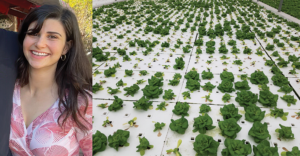
The NC State Plant Disease and Insect Clinic is happy to announce the arrival of our newest lab member, …
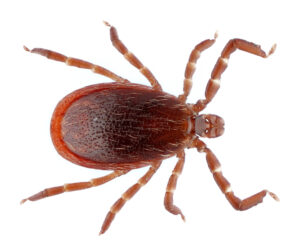
As outdoor season begins to ramp up, one unfortunate side effect is more encounters with ticks. These blood-sucking arthropods …
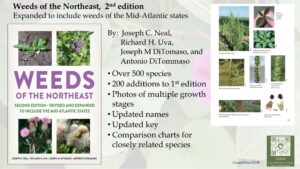
The newly revised Weeds of the Northeast 2nd edition is now available. WNE 2nd ed info slide 1 page …
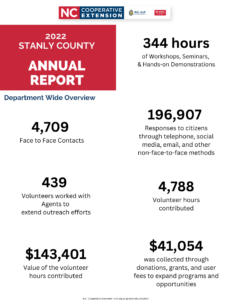
2022 Report to the People (1) N.C. Cooperative Extension, Stanly County Center Staff was proud to serve the citizens of Stanly …
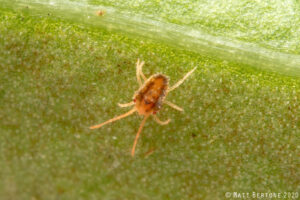
Note: This post was originally published March 2021, and updated March 2023 Insects and other arthropods are feeling the warm …

OK I know it’s March, so I am going to blame a warm early season this year for our …
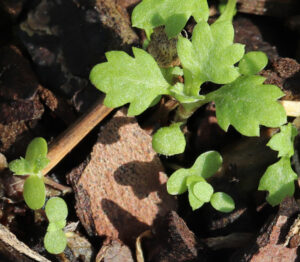
Mugwort plants spread by rhizomes. At least that’s what I was taught. But mugwort can, occasionally, produce viable seeds. …
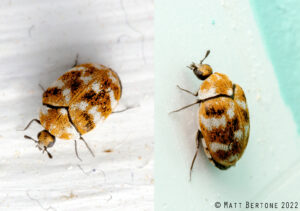
You may be noticing numerous, small (~2-3 mm), round critters crawling along window sills lately — I know I …

It is with immense gratitude that we wish the remarkable Dr. Charles “Chuck” Hodges a very happy “second retirement”. …
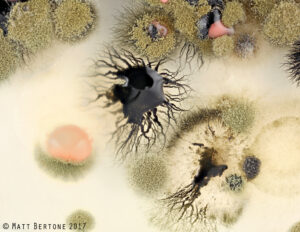
Beginning January 17th, 2023, the NC State Plant Disease and Insect Clinic (PDIC) will no longer be providing identification …
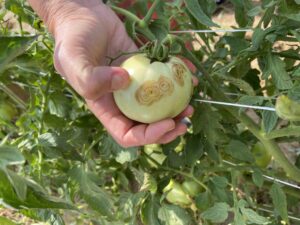
In summer 2022, symptoms of TSWV (Tomato spotted wilt virus) were observed at two tomato farms in Rowan County, …
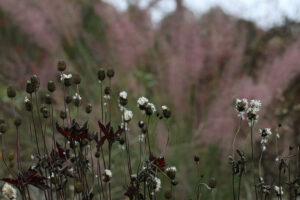
After planting, weeding, and watering through the spring and summer, some gardeners look forward to fall as a period …
The 74th Annual Crop Protection School will be held Thursday, December 1, 2022, online via Zoom. RSVP is required, …

The NC State Plant Disease and Insect Clinic will be closed Thursday and Friday, November 24-25, 2022 for the …
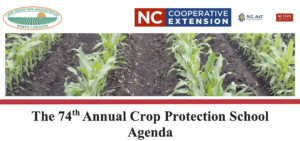
The 74th Annual Crop Protection School will be held virtually on Thursday, December 1, 2022 using the Zoom platform. Please …

The goal of pesticide applicator certification/recertification and licensing is to protect people, property, the food supply, and the environment …
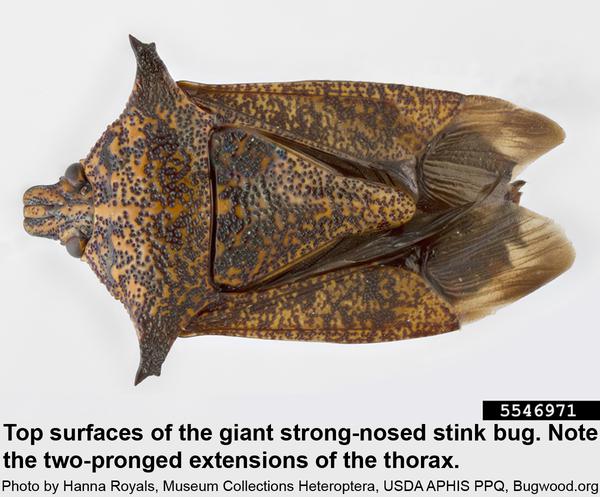
This factsheet describes the biology of the giant strong-nosed stink bug, Alcaeorrhynchus grandis, and provides …

This manual prepares pesticide applicators for Forest Pest Control Certification exams in the following states: …
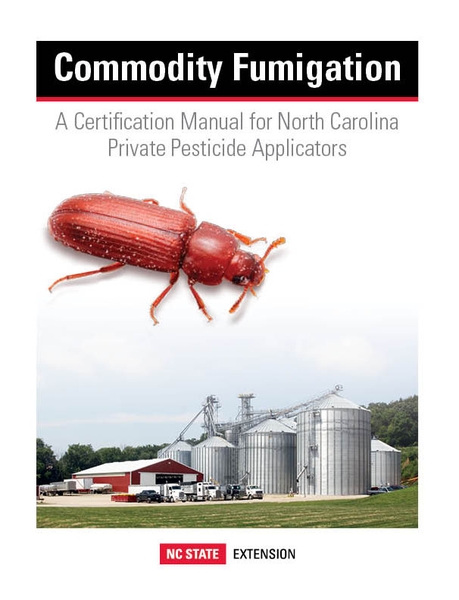
This manual provides guidance tailored for North Carolina's non-commercial pesticide applicators using fumigants in commodity …
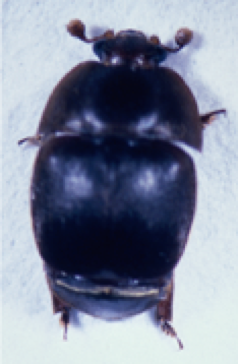
This factsheet describes the small hive beetle, its life cycle and how to prevent infestations …
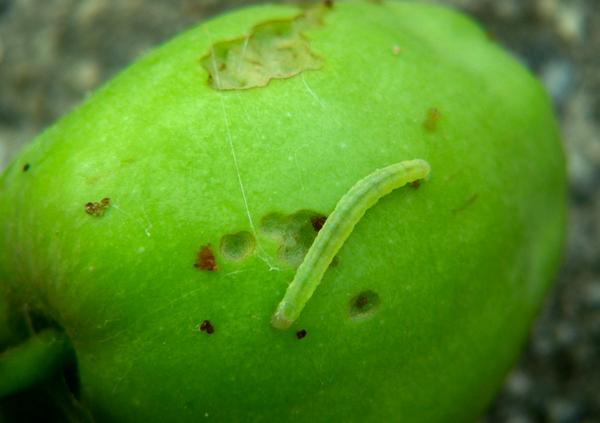
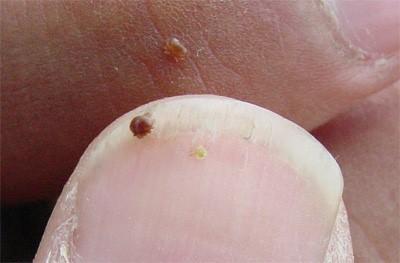
It is the goal of every beekeeper to maintain healthy, productive colonies. This can only …
To apply restricted-use pesticides to agricultural commodities, you must be certified or be supervised by …

This factsheet offers information on the biology and management of the emerald ash borer, an …